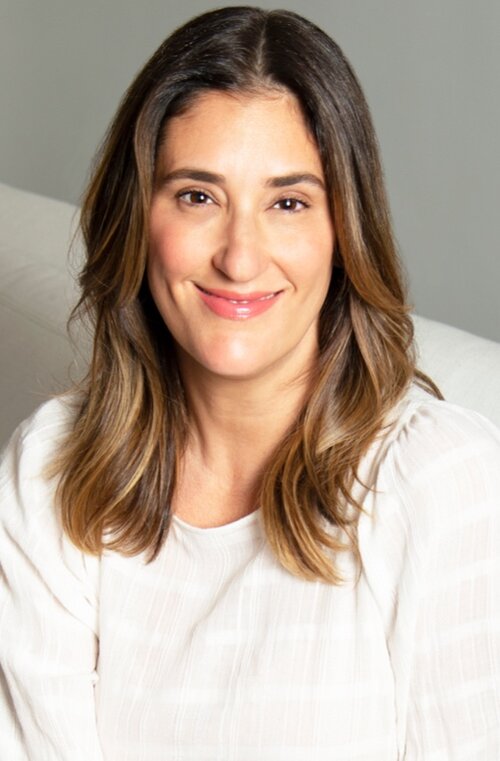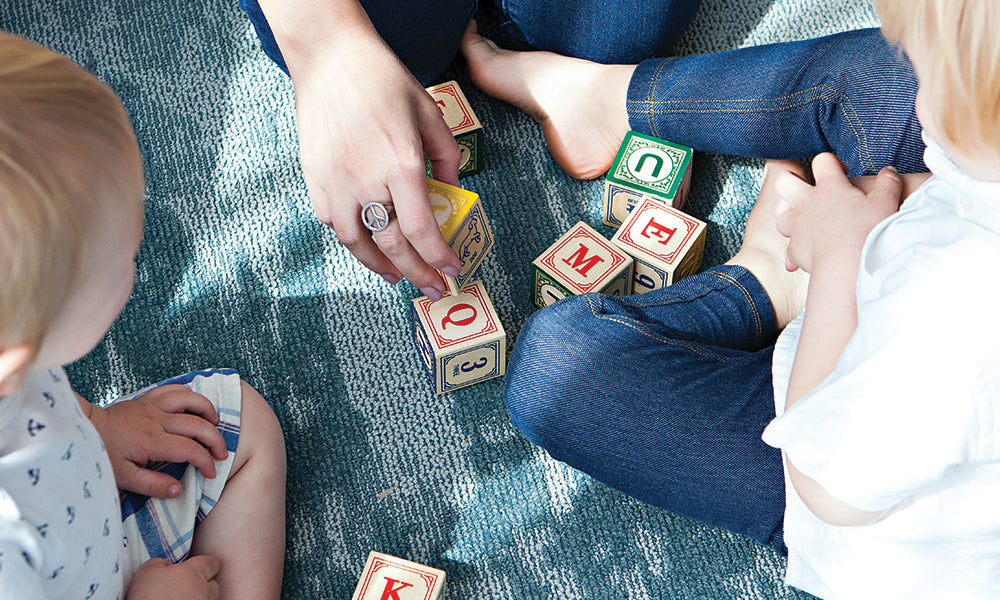
Rachel Zaslansky Sheer is the co-owner and co-founder of The Grapevine Agency. Since 2005, she has specialized in permanent placement of executive and personal assistants, home staffing and management, and focuses on making career matches, utilizing the highest standards of recruiting.
Rachel’s extensive experience as a corporate recruiter working with high profile clientele has enabled her to make long-lasting relationships with top tier candidates which have lead to hundreds of well-informed successful matches. Over the past 15 years, her hands-on approach coupled with her natural ability to network and create strong relationships within the entertainment industry has been her secret to success.
An expert in interviewing and match-making, we caught up with the Brentwood-based mother of two to ask her to share her insider advice on how to find and hire the best nanny/caregiver for a family.
What are some of the personal background questions we should be asking in an effort to get to know the interviewee?
I always like to get a sense of where they are from and a bit about their home life and family. It gives you a lot of valuable info and they become a little more human, more than just a resume. I also always ask what brought them to LA. When considering a nanny, a big question is always how seriously this person takes this type of job. It’s not your average 9-5 office job, so we want to make sure this person’s heart is really in it for the right reasons. We want to ensure that they aren’t a babysitter who wants to be a nanny because they think it’s easy or flexible. In LA, a lot of people come here with big dreams or aspirations to be in the entertainment industry. I want to know that my nannies aren’t applying because they see this as a side job while they try to reach those goals. We are always looking for long-term career nannies. If not, they simply don’t take it seriously.
Another key question I normally ask is what they ultimately want to do? We want to hear that they want to make a career out of the job they are applying for and this isn’t just a stop-over on the way to a totally different career goal.
We like to know what education they have that relates to being a Nanny. Hearing that someone has early childhood development education is always a plus in this field.
I also like to inquire about the exact ages and duties of their last job to make sure they match up to what my client is needing. There are many types of nanny jobs and they vary so much based on the age of the kids, so it’s nice to have someone walk you through what a day in their old job really looked like.
In your opinion, what are the best questions to ask about the caregiver’s philosophy and approach to childcare?
We always like to hear their philosophy on childcare -- as well as if and how they discipline -- before getting into what our clients are looking for. A great way to ask these more awkward questions is to give them a couple scenarios and ask how they would handle them. This usually gives us a sense of how strict the nanny is to see if it matches with the parent’s philosophy, or to see if they are a complete softie, catering to what the children want to hear.
Any tips on how to properly asses the caregiver/child relationship, either via questions the interviewer can ask or a “trial run” test?
We love trials! There is no better way to see if it is a true match other than a trial day or week. Sometimes people are great on paper and amazing in an interview but if the nanny and children don’t click personality wise, it’s never going to work. You have to remember a nanny becomes a fixture in your house and it’s so important for both the kids and the parents (as well as other staff) to be at ease around each other. A personality fit is one of the most important factors when hiring a new staff member. Sometimes, the only way to see if the chemistry is there is to spend a little time together. Another great way to find out about the nanny’s personality is to ask his/her former employers during the reference check. I always like to get a sense from the past employer what that relationship looked like. References are valuable for so many reasons. It’s always great to hear a little inside scoop of what the last job really looked like from someone else’s perspective.
What are some of the formal early childhood development or childcare training that is important to note when interviewing?
While all of our candidates have varied backgrounds and levels of education, one thing you can count on is a family wanting someone who is CPR certified and has a clean driving record. Some clients ask for certain degrees and education if they have very specialized needs, but typically it’s more based on experience with other families and great references.
Is CPR certification a cost the nanny or employer is expected to absorb?
If you don’t have your certification, you can get one pretty quickly. Luckily there are many different places that offer CPR certification classes. If a candidate isn’t CPR certified (or it has expired) and a client requires it, typically the client will offer to pay for a refresher course to make them feel most confident in their nanny. However, most nannies have it or are very open to renewing theirs.
What are the key questions that need to be addressed when looking at the caregiver’s logistics on work load, hourly/day/weekly rate?
We think it’s important that the nanny doesn’t live too far. A lot of times we map out their address and our clients to make sure that the commute is a realistic one and the traffic alone won’t be the reason it’s not a fit. Once we know that logistically speaking it’s a match, we move on to aligning the schedules and pay to make sure everyone is on the same page. We base pay on what the nanny was making in their last job and determine what the yearly salary will be. (Give or take overtime, of course, as many nannies tend to have to be flexible for the occasional night out or weekend work.)
In an effort to avoid conflict upon hire, do you recommend a written contract of expectations, hourly rates, etc.?
Yes! We offer our clients a “Client/Caregiver Agreement." This is a general form that they fill out upon hire that really irons out all of the logistics upfront so no one goes into the new relationship with questions. I think having open lines of communication is key. We give a general form and clients can use it as their template. They can add as much or as little detail as they see fit. We like to know the basics like start date, weekly schedule, salary, what holidays are paid time off, if there is cell phone pay, mileage, health benefits, etc. This way it’s clear upfront and there are no surprises come July 4th weekend.
How many references should you be asking for?
We always ask for at least three people that they reported directly to. We don’t have much interest in personal references for obvious reasons. Speaking directly to the former boss is the way to go! References are a huge part of what we do and we love to dig deep and get a real sense of the relationship, why it ended, and everything in between.
What are the type of questions we should be asking references?
I always ask how they met, what were their duties, ask them to tell me about their general character and work ethic, and then any red flags that I should be aware of. Always let them know what type of job the nanny is up for and a little about the personality of the client. This may bring something up for them that they wouldn’t think of off-hand.


